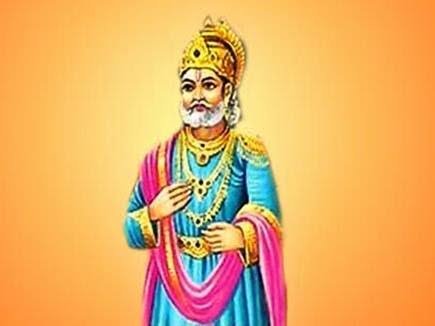
Informative
Asceticism or Household: Shukadeva, King Janak, and the Choice of Path
In the hustle and bustle of our daily lives, amidst the never-ending demands of work, responsibilities, and nurturing our relationships, we often find ourselves yearning for a deeper understanding of spirituality. We seek solace, inner peace, and a connection to something greater than ourselves. But a burning question arises: Do we need to be ascetic, detached from the world, to truly embark on a spiritual journey? And how can one explore the depths of spirituality when surrounded by the weighty responsibilities of duties and family?
These profound inquiries touch the hearts and minds of countless individuals seeking harmony and spiritual growth. But let us not dismiss the notion that spirituality can only be accessed through solitary retreats or secluded contemplation. Instead, let us explore the idea that spirituality can be discovered and nourished even within the ebb and flow of our daily lives.
Allow us to share an intriguing story that sheds light on this very topic. It revolves around Sage Shukadeva, a well-learned son of the great Sage Vyasa and King Janak, renowned for his deep spiritual wisdom.
Birth of Shukadeva
Desiring to have a son, Lord Vyasa devotedly worshiped Lord Shankar. As a result, he was blessed with Shukdevji as his beloved child. Vyasji fulfilled all the sacred rituals, such as the ceremony of Yajnopavit, for Shukdevji. Shukdevji resided in a Gurukul (spiritual learning center), where he swiftly acquired a profound knowledge of the Vedas and other sacred scriptures.
Upon returning home, Vyasji joyfully welcomed his son and expressed, “My dear child, you possess remarkable intelligence and have diligently studied the Vedas and the principles of righteous living. It is now time for you to enter the stage of Grihastha Ashrama ( householder) and fulfill your duties by performing sacred rituals for both the gods and our ancestors!”
Shukdevji spoke, “Father, embracing the responsibilities of a householder can be challenging. Oh, wise one, as your own son, why do you insist on pushing me into this materialistic world? The pursuit of happiness through relationships, such as having a wife, children, and grandchildren, often brings sorrow. The illusion of happiness deceives us. Instead, I seek knowledge that will guide me away from harmful actions. Please grant me that wisdom, which will shield me from the pitfalls of worldly desires.”
Vyasji said, “Son, you are incredibly fortunate. I have composed a sacred text called Devi Bhagavata. I urge you to study it attentively. In the first half of these verses, the divine goddess Parashakti imparts knowledge about the universe to Lord Vishnu. Lord Vishnu, in turn, shared this wisdom with Brahmaji, who passed it on to sage Narada. Finally, it reached me through sage Narada, and I structured this ancient knowledge into twelve sections known as skandhas. My wise son, by studying Devi Bhagavata, which holds the same significance as the mighty Vedas, you will remain untouched by illusions while living in this world, rather than adopting the path of Sanyasa (renunciation).
Journey to Mithila
Despite Vyasji’sVyasji’s teachings, when Shukdevji’sShukdevji’s inner peace remained unfulfilled, Vyasa advised, “Son, I suggest you visit Rajarshi Janakji, a sage known for his wisdom and freedom. He resides in Mithilapuri, a place where your ignorance will be dispelled. Once enlightened, you can return to my ashram and choose the path that brings you true happiness.”
Following Vyasji’s command, Shukdevji arrived in Mithila. At the city gate, the guard treated him with impoliteness. However, the wise sage remained unperturbed and unruffled by the disrespect shown to him. After a while, the King’sKing’s advisor noticed Shukdevji and escorted him to the royal palace. There, Shukdevji was warmly received and honored, yet his mind remained untouched by worldly attractions. Eventually, he was presented before King Janak. After extending his hospitality, King Janak inquired, “”Oh, great sage! You possess remarkable detachment, unaffected by both joy and sorrow. Kindly enlighten us about your purpose here.”
Shukdevji spoke, “Oh, noble King! My father, Vyasji, has instructed me to marry and embrace the path of a householder. However, I have declined his proposal, as I perceive household life to be a constraining agreement. I yearn for liberation from the entanglements of this world. Please guide me on this quest.”
Maharaj Janak replied, “Oh, wise one! It is the mind alone that holds the power to bind or liberate individuals. It is responsible for both the shackles of mental bondage and the freedom of the mind. The experiences you encounter stem from the disparity between mere information and practical wisdom. This confusion arises due to the distinction made between the individual soul (Jiva) and the ultimate divine soul (Brahman).”
Oh, esteemed scholar! The bonds we experience are not rooted in our physical bodies but rather in our egos and mind. To dispel this illusion, we require the light of Brahma Dnyana, which is the true knowledge of the divine. The body and home themselves are not the sources of bondage, but rather it is our attachments and ego that hold us back. Oh, noble one, spirituality is not limited to the realms of seclusion and renunciation. It can be realized even amidst the duties and responsibilities that life presents. It is not about abandoning the world but rather embracing it with a detached yet compassionate mindset.”
Janak’sJanak’s teachings obliterated all doubts within Shukadev’s mind. They returned to the ashram, where Shukadev subsequently married a beautiful girl named Pivari. He followed the principles of being a householder, fulfilling his responsibilities with diligence. Eventually, he attained liberation by embracing the path of renunciation (Sanyasa).
This story of Sage Shukadeva and King Janak serves as a powerful reminder that spirituality is not confined to the realm of the ascetic. It is a path open to all, regardless of our circumstances. By infusing our daily actions with mindfulness and by cultivating an attitude of selflessness and gratitude, we can discover profound spiritual growth within the very fabric of our lives.
Whether we are tending to our family, fulfilling professional responsibilities, or serving our community, we can infuse each moment with love, kindness, and integrity. By doing so, we transcend the mundane and enter the realm of spirituality.
Dear seekers, we invite you to reflect on this story. Have you found moments of spiritual connection within your daily routines? How do you balance your worldly duties with your longing for spiritual growth? Share your thoughts and experiences in the comments section below.
Please subscribe to our mailing list to stay connected and receive spiritual information. In case of any queries, please write to us at info@chamundaswamiji.com. You can check out our YouTube channel Chamunda Swamiji where you can learn Tantra, Mantra, Yantra, and Meditation from His Holiness Shri Chamunda Swamiji. If you seek to learn Shakti Kriya, please register with us, and we will get back to you.
Post a Comment
-
Subscribe to Our Blog
-
Categories
-
Popular Articles
- Dead moth in the house. What universe is trying to tell you?
- Spiritual Meaning of Moth
- Vivah Bandhan Curse – What Is It and How to Spiritually Heal It.
- The Dasa Mahavidyas
- What are Beej Mantras?
- Tripura Sundari | The Dasa Mahavidya
- Maa Bhuvaneshwari | The Dasa Mahavidyas
- The Five Shades of Tantra
- Ramakrishna Paramhansa – The Man who almost became a Woman
- Maa Chinnamasta | The Dasa Mahavidyas



